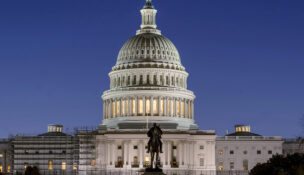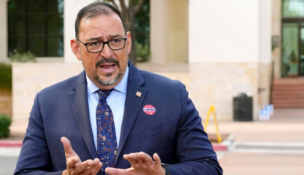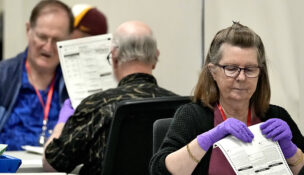Pearce crafts bill to ask voters to lift spending restrictions
Arizona Capitol Reports Staff//January 16, 2009//[read_meter]
Pearce crafts bill to ask voters to lift spending restrictions
Arizona Capitol Reports Staff//January 16, 2009//[read_meter]
A state senator said he plans to file legislation that would ask voters to temporarily lift a constitutional provision that prevents lawmakers from tinkering with voter-approved measures so that legislators...
No tags for this post.

















